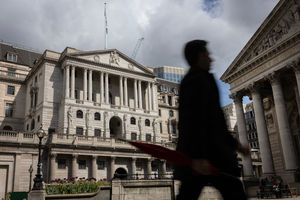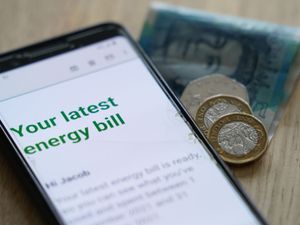Bank of England cuts interest rates to 4.5% amid slow growth - what it means for you
The BoE's decision aims to boost the economy, but the impact remains uncertain 💸
Watch more of our videos on ShotsTV.com
and on Freeview 262 or Freely 565
The Bank of England has reduced interest rates to 4.5%, the lowest since June 2023
The economy’s growth forecast for 2024 is slashed to 0.75%, down from 1.5%
Inflation is expected to peak at 3.7% later this year, putting pressure on prices
Mortgage holders may see slight relief, but borrowing costs remain high due to inflation
The rate cut offers limited benefit to the public as living costs continue to rise
The Bank of England has reduced UK interest rates to 4.5%, following a decision by its Monetary Policy Committee (MPC) to lower borrowing costs.
The move also comes alongside a revised reduction in short-term economic growth projections.
The quarter-point cut follows similar adjustments made in August and November 2023, bringing the base rate to its lowest level since June of the same year.
Bank of England Governor Andrew Bailey said the cut will be “welcome news to many” but that the Bank is “monitoring the UK economy and global developments very closely, and taking a gradual and careful approach to reducing rates further”.
The Bank also reduced its growth forecast for the UK economy to 0.75% this year, down from a previous estimate of 1.5%, with expectations of a rebound in 2026 and 2027.
The revision is a setback for Chancellor Rachel Reeves, as Labour had made economic growth a central priority. Indeed, Reeves has said the interest rate cut is “welcome news” but that she is still “not satisfied” with growth.

The update also arrives as inflation shows signs of increasing once more, with predictions now pointing to a higher-than-anticipated peak of 3.7% later in the summer.
But what does the news mean for you, and will it lead to higher or lower prices for goods and services on the high street? How does it affect mortgages? Here is everything you need to know.
What does the news mean for me?
In real terms, the news means that the UK economy is facing slower growth than initially anticipated, which could have several impacts on the average person.
The Bank of England’s interest rate cut to 4.5% is aimed at stimulating the economy, but the key to understanding its real-world impact is how it balances with inflation expectations.
A personalised morning news round-up with NationalWorld Today - sign up here.
For those with mortgages, particularly variable-rate or tracker mortgages, the rate cuts could lead to slightly lower monthly repayments.
But if inflation remains higher than expected, the cuts might not be enough to offset higher costs of living in other areas. For new borrowers, it could still mean higher costs than before the rate hikes of 2022, but rates might start to ease slightly.
The reduced interest rates could make borrowing slightly more affordable, which may benefit individuals taking out personal loans, car loans, or other types of credit.
But if inflation rises unexpectedly, people might still find that the cost of borrowing doesn't feel as low as it did pre-inflation crisis, and this could lead to financial strain for those already managing existing debt.
The forecast for rising inflation (expected to peak at 3.7%) indicates that prices for everyday items - like groceries, fuel, and household products - may continue to rise, albeit at a slower pace than the recent peak of inflation seen in 2022.
For consumers, this means that their purchasing power could be eroded, making it more expensive to buy the same goods and services. Thi Bank of England Cuts Interest Rates to 4.5% Amid Slower Growth and Rising Inflation Fears s could particularly affect essentials, such as food, energy, and transportation.
In short, while the rate cuts could provide some relief for borrowers, they will not be enough to fully combat rising living costs caused by inflation.
For the general public, it means tighter finances in the short term, with prices on the high street continuing to increase, though at a slower pace.
What do you think about the Bank of England's decision to cut interest rates? How do you expect this will impact your finances, from mortgages to everyday costs? Share your opinions and experiences in the comments section.





